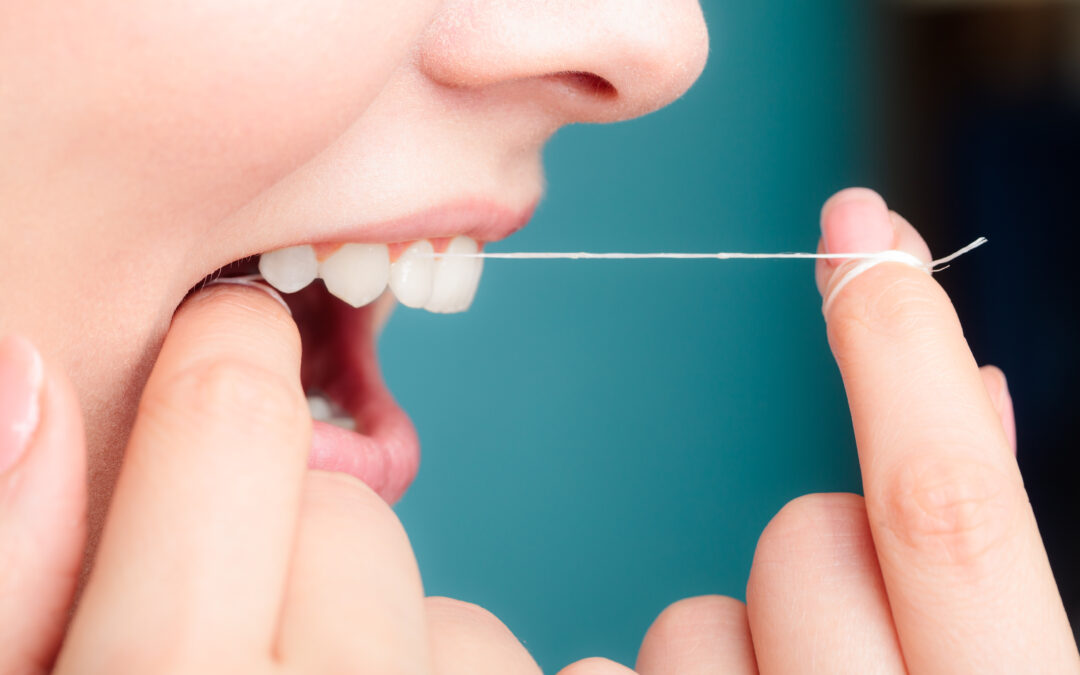Do you notice a little bit of blood when you brush or floss your teeth? While slight bleeding from your gums may appear normal, it can suggest an underlying issue if the bleeding happens regularly. The bleeding could be the result of something simple such as brushing your teeth incorrectly. However, it can also be the result of a more severe health condition like periodontal disease. Whatever the cause, if your gums are bleeding, do not ignore it. Continue reading to learn about some reasons why your gums bleed, and what you can do to help stop it from happening.
WHY DO MY GUMS BLEED?
There are many reasons why your gums might bleed. Some reasons may be related to your oral care routine, while others are more severe and could suggest an underlying health condition that warrants further investigation.
- Incorrect brushing technique
- Using too hard of a toothbrush
- Just started flossing
- Certain medications, like blood thinners
- Gingivitis
- Hormonal changes during pregnancy
- Dentures that do not fit properly
- Faulty dental restorations
- Periodontal disease
- Type 1 or 2 diabetes
- Leukemia
- Thrombocytopenia
- Scurvy
- Hemophilia or von Willebrand disease
- Vitamin C deficiency
- Vitamin K deficiency
HOW CAN I STOP MY GUMS FROM BLEEDING?
If you notice your gums are bleeding, there are several measures you can take to help stop the bleeding. However, if your symptoms do not improve within seven to 10 days, you should schedule an appointment with your dentist as soon as possible to discover the origin of the problem.
Practice Proper Dental Hygiene
Plaque build-up is the most common cause of bleeding gums. If you do not remove the plaque along your gum line through regular brushing and flossing, it will turn into tartar. This can cause your gums to become inflamed (known as gingivitis) and can lead to tooth decay and gum disease.
The most successful way to reduce plaque build-up is by brushing your teeth and flossing regularly. The American Dental Association recommends brushing your teeth twice a day for two minutes and flossing once per day to remove plaque and leftover food particles. When bruising your teeth, place your toothbrush at a 45-degree angle and gently move it back and forth in short strokes. Remember to brush the outer surfaces, the inner surfaces and the chewing surfaces of your teeth.
Use the Correct Toothbrush
According to the ADA, you should brush your teeth with a soft-bristled toothbrush — anything harder, even a medium-bristled toothbrush can wear away your tooth enamel. Soft-bristled toothbrushes also clean better because they can get under the gum line and loosen plaque from around your teeth and gums. And don’t forget to replace your toothbrush every three or four months, or sooner if the bristles are frayed. A worn-out toothbrush does a poor job of cleaning your teeth!
Eat a Healthy Diet
Did you know the nutritional choices you make affect your oral health? The foods you eat and the drinks you consume all come into contact with your teeth and gums, and ones that are high in sugar create a perfect environment for plaque. To decrease your risk of tooth decay and gum disease, the ADA recommends drinking plenty of water and incorporating fruits and vegetables, as well as foods that are high in calcium and phosphorus into your diet.
Stop Smoking
According to the Centers for Disease Control and Prevention, smoking is a major factor for gum disease in the United States. Smoking weakens your immune system and makes it harder for your body to fight off infections — that includes the damage done from plaque. If you are a smoker, consider these eye-opening statistics about smoking and gum disease from the CDC:
- You have twice the risk of gum disease as a non-smoker
- Your risk for gum disease increases every time you smoke a cigarette
- Your risk for gum disease increases the longer you smoke
- Gum disease treatments may not work as well for you if you smoke
Besides oral health problems, there are multiple other health risks caused by smoking including lung cancer, heart disease and stroke. Quitting smoking can be difficult, but it is necessary for your long-term oral and overall health. If you have any questions about the best ways to stop smoking, consult with your doctor.
Reduce Your Stress
There may be a link between periodontal disease and emotional stress. According to this study, too much emotional stress can harm your immune system and could result in your body not being able to fight off a gum infection. There is still more research to be done in this area, however.
Emotional stress may also lead to oral health neglect, as some people skip brushing and flossing their teeth or choose to eat unhealthy meals when they are stressed. Additionally, stress produces inflammation in the body, which can cause your gums to bleed easier.
VISIT YOUR DENTIST | THE LANDING DENTAL SPA
If you notice bleeding, swollen, receding, tender or dark red gums after incorporating these changes, it is time to schedule a visit with your dentist. Your dentist will examine your teeth and gums and may recommend you visit a periodontist for a deep dental cleaning or a visit with a primary care doctor if another underlying health problem is suspected.
If you are concerned about bleeding along your gum line and would like to make an appointment with one of our dentists at The Landing Dental Spa, please give us a call at 304-594-2200 or use our online contact form. We look forward to hearing from you!


Recent Comments